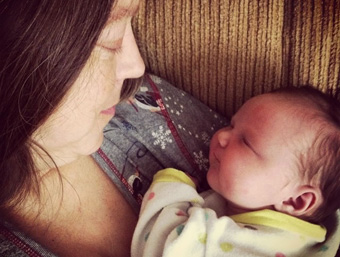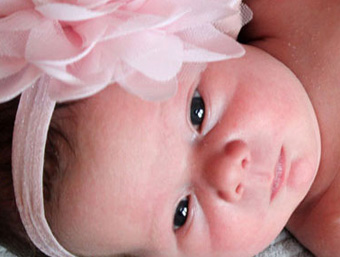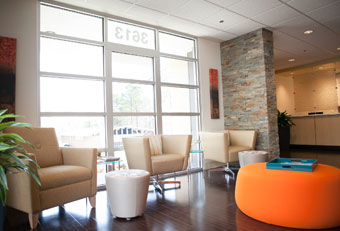Essure Reversal Study: Pregnancy Is Possible
Raleigh (NC) FOR IMMEDIATE RELEASE
A Personal Choice of Raleigh
MEDIA CONTACT: Mary H Heramia
Contact: MaryH@tubal-reversal.net
Phone: (919) 968-4656
Raleigh, North Carolina – January 12th, 2015 – A recently published Essure reversal study demonstrates Essure sterilization can be reversed and allow for natural conception.
Essure was approved by the FDA for female sterilization in 2001 and is the newest form of sterilization. The Essure micro-insert is a device composed of two metallic coils which are inserted inside the opening of each fallopian tube. The Essure device causes tissue in-growth, which results in permanent blockage of the fallopian tubes.
The Essure procedure has been marketed as easier to perform than other types of tubal occlusion because Essure can be performed within a doctor’s office, without general anesthesia, and can provide patients with a shorter recovery time than traditional tubal ligation procedures. A similar sterilization procedure, Adiana sterilization, was removed from the market due to patent infringements.
First doctors to report successful Essure reversal
Essure sterilization is intended to be permanent and not reversible. The fertility surgeons of A Personal Choice, formerly Chapel Hill Tubal Reversal Center, were the first surgeons in the world to report within peer reviewed medical journals successful pregnancy after surgically reversing Adiana, Fertility and Sterility in 2011, Normal pregnancy after outpatient tubouterine implantation in patient with Adiana sterilization, and successful pregnancies after Essure reversal, Journal of Obstetrics and Gynecology in 2012, Successful Pregnancies After Removal of Intratubal Microinserts.
Their surgical procedure to reverse Essure requires the Essure micro-inserts be surgically removed and the healthy remaining fallopian tube is then reinserted into the cavity of the uterus. This procedure is referred to as a tubouterine implantation procedure and is performed on an outpatient basis at the center.
Essure reversal study 2014
Since their initial case report of successful pregnancy after surgical reversal of Essure, the fertility surgeons have demonstrated in a larger cohort of patients Essure reversal surgery can be safely performed in an outpatient setting and can provide patients with a restoration of natural fertility: Pregnancy Success After Hysteroscopic Sterilization Reversal
The purpose of the Essure reversal study was to evaluate the effectiveness of Essure sterilization reversal by assessing pregnancy rates and identifying surgical complications. The study was conducted by performing a retrospective medical record review from 2008 to 2014 and identifying patients who reported pregnancy. All patients who requested reversal of Essure sterilization to become pregnant, had bilateral repairs, and had at least 12 months of follow up after surgery were included in the analysis. Seventy patients were identified who meet study inclusion criteria.
 There were no immediate surgery complications. Four patients reported complications within the first month of having surgery which could have been associated with Essure reversal surgery. These four patients did not experience any severe complications requiring prolonged hospitalization.
There were no immediate surgery complications. Four patients reported complications within the first month of having surgery which could have been associated with Essure reversal surgery. These four patients did not experience any severe complications requiring prolonged hospitalization.
Twenty-five patients (36%) reported a total of 31 naturally conceived pregnancies. Of these 31 total pregnancies, 20 pregnancies (65%) resulted in live births. Of all 70 women who had surgery to reverse Essure a total of 25 women (36%) reported pregnancy. A single pregnancy complication of postpartum hemorrhage after cesarean delivery requiring transfusion was reported. Women who became pregnant were younger (mean age 34 years) than those who did not become pregnant (mean age 38 years).
The lead Essure reversal study author and Medical Director of A Personal Choice, Dr. Charles Monteith, believes Essure reversal surgery can be performed safely in an outpatient center and with low risk of complication. The surgical procedure to reverse the type of blockage caused be Essure sterilization was first successfully performed in the early 1900’s. According to Dr. Monteith, ” It is ironic how an ‘older’ surgical procedure has been reemployed to correct a ‘newer’ form of sterilization.”
Patients will often regret their sterilization procedure and desire more children. Women who have undergone Essure sterilization and desire more children now have a very meaningful alternative to in-vitro fertilization treatment. The experience of the surgeons at A Personal Choice have proven Essure sterilization does not have to be permanent and can be surgically reversed.
More information about Essure removal
Dr. Monteith maintains an active website and provides accurate and current information about sterilization reversal surgery, Essure removal, and Essure reversal. A new section of his website was recently added exclusively to provide information about Essure for physicians who are treating Essure related complications and need more information about Essure removal surgery.
For more information: Essure removal and Essure reversal for physicians
For information on Essure side effects and symptom response after removal:
Essure Removal Patient Survey
If you would like to become a patient of Dr. Monteith’s then visit his website:
A Personal Choice
Medical Literature on Hysteroscopic Sterilization Reversal
1. Normal pregnancy after outpatient tubouterine implantation in patient with Adiana sterilization
Monteith, Charles W. MD; Berger, Gary S. MD, MPH, Fertil Steril: July 2011 – Volume 98 – Issue Part 1 – pages e45-e46
2. Successful Pregnancies After Removal of Intratubal Microinserts
Monteith, Charles W. MD; Berger, Gary S. MD, MPH, Obstetrics & Gynecology: February 2012 – Volume 119 – Issue Part 2 – p 470–472
3. Pregnancy Success After Hysteroscopic Sterilization Reversal
Monteith, Charles W. MD; Berger, Gary S. MD; Zerden, Matthew L. MD, MPH, Obstetrics & Gynecology: December 2014 – Volume 124 – Issue 6 – p 1183–1189









